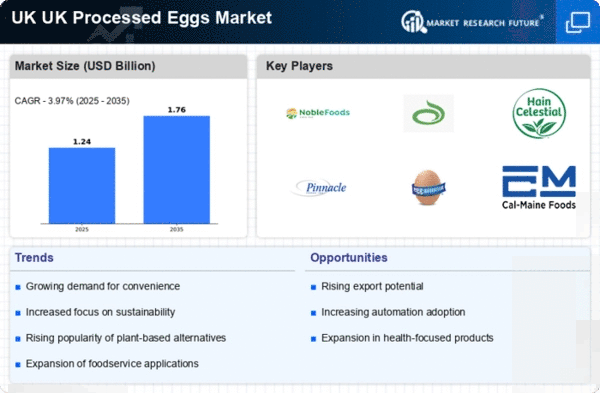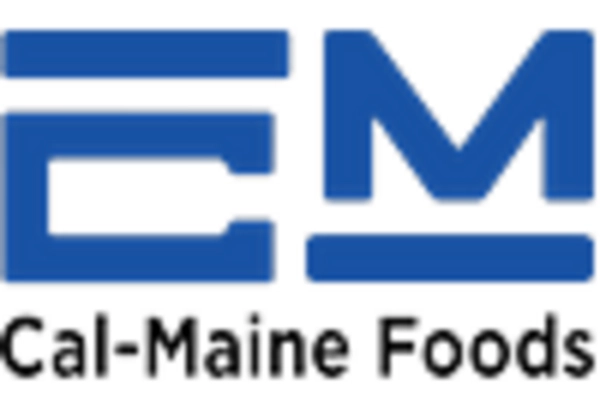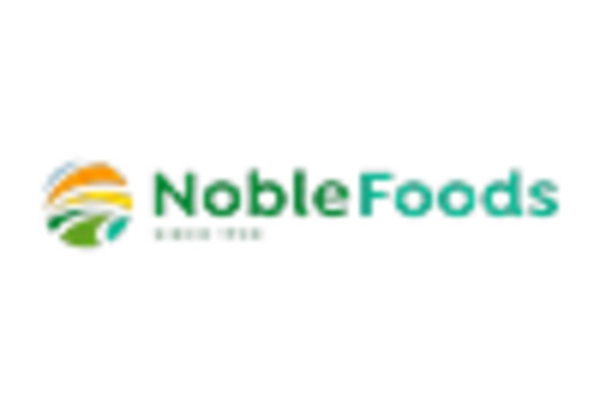Market Trends
Key Emerging Trends in the UK Processed Eggs Market
The UK processed eggs market has witnessed significant trends in recent years, reflecting changes in consumer preferences, dietary habits, and the evolving food industry landscape. One prominent trend is the increasing demand for convenient and ready-to-use egg products. As busy lifestyles become the norm, consumers are seeking time-saving options in the kitchen, leading to a surge in popularity for processed eggs in various forms such as liquid eggs, pre-cooked scrambled eggs, and egg whites. This trend aligns with the modern emphasis on convenience and the need for quick and hassle-free meal preparation.
The rise of health-conscious consumer behavior has also influenced the UK processed eggs market, with a growing demand for healthier and more transparent product options. Processed egg manufacturers are responding by offering products with reduced cholesterol, organic and free-range options, and labeling that emphasizes nutritional benefits. This trend reflects a broader movement towards mindful eating and a desire for clean-label, nutritious food choices, positioning processed eggs as a versatile and health-conscious protein source.
Sustainability considerations are playing an increasingly significant role in shaping the UK processed eggs market. Consumers are becoming more aware of the environmental impact of food production, leading to a preference for sustainably sourced and ethically produced egg products. This trend has prompted industry players to adopt environmentally friendly practices in their supply chains, including the use of cage-free eggs, eco-friendly packaging, and reduced carbon footprints. The emphasis on sustainability aligns with the growing importance of ethical and eco-conscious choices in consumer purchasing decisions.
In response to the evolving dietary landscape, there is a notable trend towards plant-based and alternative egg products in the UK processed eggs market. With the rise of veganism and flexitarian diets, manufacturers are developing innovative egg substitutes derived from plant sources such as soy, pea protein, and algae. These plant-based alternatives aim to cater to consumers looking for cruelty-free and sustainable options while providing a similar texture and taste to traditional eggs. This trend reflects the industry's adaptation to changing dietary preferences and the expanding market for plant-based protein alternatives.
The influence of technology is evident in the UK processed eggs market, with advancements in processing and packaging contributing to product innovation. Improved processing techniques such as pasteurization and aseptic packaging ensure the safety and extended shelf life of processed egg products, meeting consumer expectations for freshness and quality. Additionally, technological advancements play a role in enhancing the efficiency of production processes, contributing to the scalability and cost-effectiveness of the processed eggs industry.
The market dynamics include strategic collaborations and partnerships among key players in the UK processed eggs sector. Companies are forming alliances to enhance their market presence, share technological expertise, and address sustainability challenges collectively. This collaborative approach fosters innovation, supports industry growth, and contributes to the overall competitiveness of processed egg products in the market.



















Leave a Comment